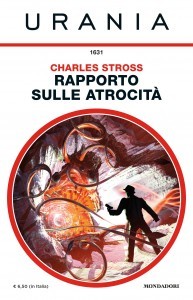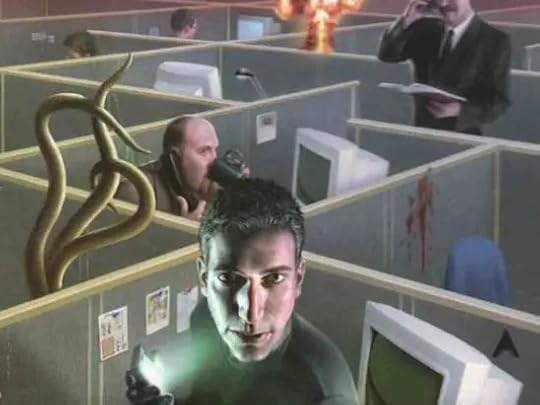What do you think?
Rate this book


290 pages, Mass Market Paperback
First published January 1, 2004

"In the Laundry we supposedly pride ourselves on our procedures. We’ve got procedures for breaking and entering offices, procedures for reporting a shortage of paper clips, procedures for summoning demons from the vasty deeps, and procedures for writing procedures. We may actually be on track to be the world’s first ISO-9000 total-quality-certified intelligence agency."

Look, it's the intersection between thermodynamics and information theory, right? Information content is inversely proportional to entropy, entropy is a measure of how well randomized a system is--that's one of the core assumptions of magic, right? That you can transfer energy between universe via the platonic realm of ordered information--mathematics.
The proliferation of nominalizations in a discursive formation may be an indication of a tendency toward pomposity and abstraction.
Writers who overload their sentences with nominalizations tend to sound pompous and abstract.
There's a pithed spy in my hotel suite an my welcome mat is going to be withdrawn with extreme prejudice when his owners find out about it, just in time to get a cryptic phone call from my target who seem stop be in fear of her life.
"There's a weird smell in the kitchen and something that's, er, squamous and rugose"--a household catch-phrase, and we all have to make the obligatory Cthulhu-waggling-tentacles-on-chin gesture with our hands--"and yellow tried to eat my shoe. What's up?"
Brains stands up: "Behold"--he hiccups--"I am in the process of disproving a law of nature; to wit, that it is impossible to make an omelette without breaking eggs! I have a punning clan--"
